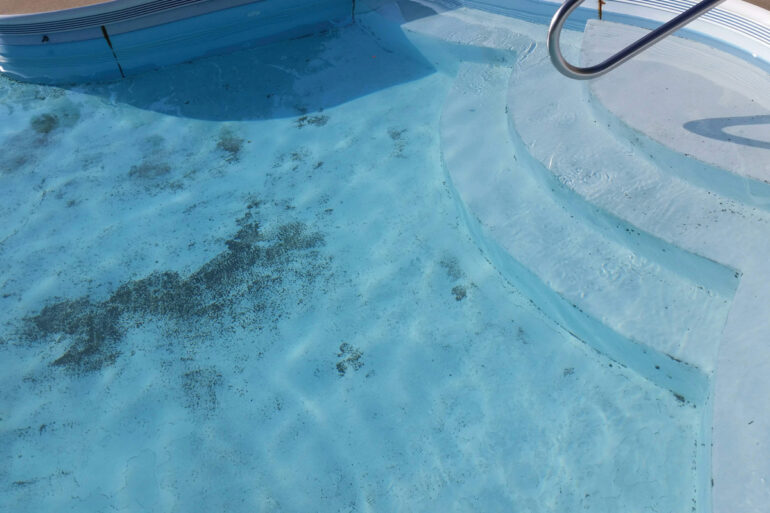Prosper Through Partnerships
Expand your reach, grow your business

Pool partnerships promote growth and prosperity when done with poise and purpose.
A partnership might mean an understanding based upon a handshake or a contract, but the underlying message is the same: “I trust your company, you trust mine, and we’re going to recommend each other to potential clients.”
It means putting your company’s credibility and reputation on the line, and that’s not a decision to be taken lightly.
“It’s how I built my business,” says Scott Johnson, founder and managing director of Normal Bear Media, a Hawke Media Company. “Before it was acquired by Hawke Media, we never did any marketing. Everything was through referrals and partnerships.”
Building relationships
Networking with complementary businesses, such as pool builders collaborating with landscaping companies, is a natural fit because pools often require landscaping around them.
“If you don’t sell hot tubs, you should have relationships with a few of the top hot tub retailers in your market so if somebody wants to have a built-in or a standalone, you can refer to them,” Johnson says. “I like home builders [for pool builders], but realtors are great for pool maintenance [connections].”
Homebuilders
For many companies, pool maintenance generates more consistent business than construction. Real estate agents should provide homeowners with information about local pool companies for ongoing maintenance, Johnson says, but the opportunities with home builders are on a larger scale.
Home builders often handle multiple projects at once, and these homes may require pools, creating opportunities for larger, repeat projects that are more scalable and profitable.
When someone invests in a new home or remodel, they often want to upgrade every aspect — including the backyard. Collaborating with a homebuilder could secure 50 pool installations in a single development, translating to 50 prequalified clients from one partnership. However, Brett Lloyd Abbott, president of Pool Builder Marketing, notes that homebuilding timelines may be longer than pool professionals are used to.
Make it official
Hawke Media has a team that works with companies and creates referrals. Johnson says an example of a good referral deal is a 10% referral fee for the first year.
“If you’re referring landscapers, don’t just refer them to be nice — refer them to get a commission,” Johnson says. “So many pool and spa companies have all of these relationships with the home builders, Airbnb and things like that, but they often lack any type of official arrangement with them.”
A simple contract, however, can mean the difference between getting a $10,000 referral fee on a $100,000 project, and just … not. And that referral fee adds up quickly for both sides.
Cobranding
Marketing and cobranding can be as simple as a handout or a website landing page. It’s a small gesture that builds trust, legitimizes partnerships and provides credibility to the companies involved. Johnson suggests creating a monthly social media post about the other business. It’s fast, inexpensive and helps raise awareness.
For Beth Boyle, owner of Royal Pools & Spas, referral partners are a big part of the business. The family-owned and -operated company has been working out of the same New York location since 1959 and has grown to three stores.
Cobranding and marketing have worked well for Boyle and her referral partners. “It’s this visual consistency that really helps us stand out,” she says.
The cobranding is on their website, handouts and final client documentation — giving clients access to “this Royal-approved vendor.”
Where to find partners
An organized program helps encourage partnerships, which result in organic leads, Johnson says. A partner who understands your industry isn’t a priority, either, he says, because you want them to direct referrals to talk to you about your product or service rather than try to explain it themselves.
“I would rather somebody know nothing and say, ‘I’m going to leave it to these guys to answer because they’re the pros and this isn’t my area,’ ” Johnson says.
For Abbott, the core of partnerships is profitability. “You have to make money,” he says. “The only reason we’re doing this is to make money. If they’ll bring you good, profitable business, that’s all it takes.”
With leads being less abundant than during the height of COVID-19, Abbott says forming mutually beneficial partnerships can reduce the need for expensive advertising since both parties can support each other without any upfront financial exchange.
Abbott says a successful partnership comes from collaborating with a company that complements your business and shares a solid reputation, like homebuilders, fencing companies, landscapers, designers, home remodelers and architects.
Growing your network
Boyle is also collaborating with Johnson’s company to start incorporating video into their social media strategy to emotionally engage customers and attract more partnerships.
“A company that doesn’t have partnerships like this is probably making their lives more difficult,” Boyle says. “If on every single job, you have to meet a new electrician or a new patio company, landscaper or fence company, then every one of those jobs is so incredibly unique, and you have to establish a relationship with these separate vendors. That becomes more work than you need, and the result is not necessarily reliable.”






